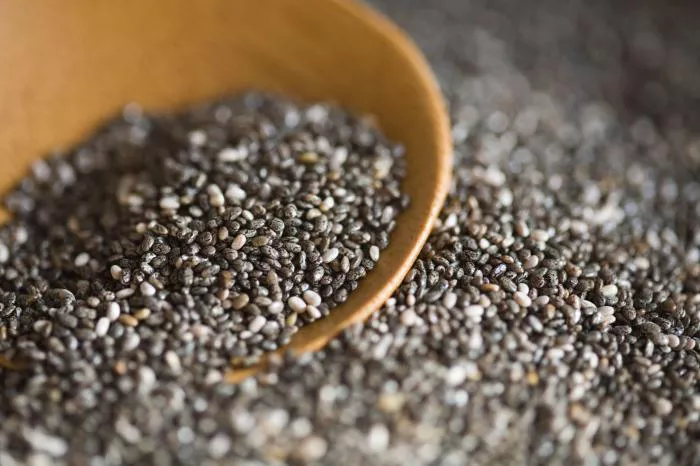Chia seeds are widely known for their nutritional benefits. They are rich in omega-3 fatty acids, fiber, protein, and various essential vitamins and minerals. Many breastfeeding mothers consider adding chia seeds to their diets to improve their health and support milk production. However, like any food, chia seeds can have side effects that nursing mothers need to understand before consuming them.
This article explores the potential side effects of chia seeds during breastfeeding. It also discusses how to include chia seeds in your diet safely.
Nutritional Benefits of Chia Seeds for Breastfeeding Mothers
Before discussing side effects, it is important to know why many mothers choose to eat chia seeds. Chia seeds are a rich source of nutrients that benefit both mothers and babies. These include:
Omega-3 Fatty Acids: Help in brain development for the baby and reduce inflammation for the mother.
Dietary Fiber: Supports digestion and prevents constipation, which is common postpartum.
Protein: Assists in muscle repair and milk production.
Calcium and Magnesium: Essential for bone health and muscle function.
Although these benefits are significant, they do not eliminate the potential risks or side effects of consuming chia seeds during breastfeeding.
Potential Side Effects of Chia Seeds During Breastfeeding
1. Digestive Issues
Chia seeds are high in fiber, which can cause digestive discomfort if consumed in large amounts. Mothers who are not used to a high-fiber diet may experience bloating, gas, or stomach cramps after eating chia seeds. These digestive issues can be uncomfortable and may even pass to the baby through breast milk, leading to fussiness or colic.
To avoid this, start with small amounts and gradually increase the intake while monitoring your body’s reaction.
2. Allergic Reactions
Although rare, chia seeds can cause allergic reactions in some individuals. Symptoms may include itching, swelling, skin rashes, or difficulty breathing. If you have a history of seed allergies or are unsure about your reaction to chia seeds, consult a doctor before adding them to your diet.
Additionally, monitor your baby for signs of an allergic reaction, such as rashes or digestive upset, as allergens can pass through breast milk.
3. Risk of Choking
Chia seeds expand when they absorb liquid, forming a gel-like texture. If they are consumed dry and not chewed properly, they may expand in the throat and increase the risk of choking. This risk is higher if chia seeds are eaten without soaking them first.
To prevent choking, always soak chia seeds in water, milk, or juice for at least 10-15 minutes before consuming them.
4. Blood Sugar Fluctuations
Chia seeds have been shown to lower blood sugar levels due to their high fiber content. While this is beneficial for some, it may pose risks for breastfeeding mothers with low blood sugar (hypoglycemia). Eating chia seeds may lead to symptoms such as dizziness, fatigue, or lightheadedness.
If you have a medical condition like diabetes or experience frequent blood sugar drops, consult your doctor before adding chia seeds to your diet.
5. Drug Interactions
Chia seeds can interfere with certain medications. For example, they may enhance the effects of blood thinners, increasing the risk of bleeding. This is due to their omega-3 fatty acid content, which can thin the blood.
Breastfeeding mothers taking blood thinners or other medications should consult a healthcare professional to avoid complications.
6. Excess Calorie Intake
Chia seeds are calorie-dense, with about 58 calories per tablespoon. While this may not seem like much, overconsumption can contribute to unintended weight gain, especially for mothers who are trying to lose postpartum weight.
Moderation is key to enjoying the benefits of chia seeds without overloading on calories.
How to Include Chia Seeds Safely During Breastfeeding
Start Small
Introduce chia seeds to your diet gradually. Start with a teaspoon per day and increase the amount slowly while observing any side effects.
Soak the Seeds
Always soak chia seeds before consuming them. This makes them easier to digest and reduces the risk of choking.
Balance Your Diet
Do not rely solely on chia seeds for nutrients. Include a variety of other nutrient-rich foods in your diet, such as fruits, vegetables, lean proteins, and whole grains.
Stay Hydrated
Chia seeds absorb a significant amount of water, which can lead to dehydration if your fluid intake is low. Drink plenty of water to stay hydrated and support milk production.
Consult a Doctor
If you have underlying medical conditions or take medications, consult your doctor before adding chia seeds to your diet. This will help you avoid adverse interactions or complications.
Conclusion
Chia seeds are a nutritious food that offers many benefits for breastfeeding mothers. They are a rich source of omega-3 fatty acids, fiber, protein, and essential minerals. However, they also have potential side effects, including digestive issues, allergic reactions, choking risks, blood sugar fluctuations, and drug interactions.
To enjoy the benefits of chia seeds without experiencing side effects, moderation is crucial. Start with small amounts, soak the seeds before eating, and maintain a balanced diet. If you have any concerns or pre-existing health conditions, consult your doctor for personalized advice.
Breastfeeding mothers should always prioritize their health and well-being, as this directly impacts their baby’s growth and development. With proper precautions, chia seeds can be a healthy addition to your breastfeeding diet.
Related Topics:


